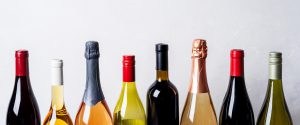
The Impact of Russia-Ukraine on the Closures Industry
Read Time: 4 Minutes
The business of making bottle caps and other closures for alcoholic beverages is a corner of the manufacturing world that few people notice. But a confluence of events sparked by the Russia-Ukraine war has brought attention to this specialized business and to one of its major players, Guala Closures, a multinational corporation headquartered in Milan, Italy, that is one of the world’s leading producers of safety, aluminium ROPP, and other closures for spirits, wines, and food products such as olive oil. It is the only spirits closure maker with a true global presence, and in 2020 had net revenue of €603.8 million and adjusted gross operating profit of €104.2 million, based on constant exchange rates.
Before noting the effects of the war on Guala, here is some background on this specialized spirits closure market, which is divided into four product types.
Closure Types
The first are screw-on plastic closures, which are used in the U.S. and in which Guala is not a player. The second are roll-on, pilfer-proof tops (ROPPs) made of aluminium that account for about 40% of the market in terms of value, and Guala long has been the leader in that segment. It is where it has the bulk of its patents and where it earns the bulk of its profits.
Closely related are the third type of closures, known as NRPPs, which are nonrefillable pilfer-proof tops also known as safety closures that account for about 30% of the market and in which Guala also is the leader, with about a 60% to 70% market share. Safety caps are made from aluminium and plastic components and are designed to prevent counterfeiting of high-end products. They are immensely popular with European spirits producers for their exports to countries such as China or Russia.
Finally, there are so-called luxury closures made of a variety of materials. Guala has a presence in that segment, but it is not a market leader. In wine, where natural cork accounts for about 70% of the value of the closure market, and in the liquid food segment, Guala is dominant in roll-on aluminium closures.
Direct Impact of the War
The war in Ukraine, where Guala has a large factory producing ROPPs and NRPPs, has affected the company significantly. Its operation there, along with a satellite production line in Belarus, generates approximately €65 million in annual sales, with an estimated €20 million in EBITDA for the business. The ROPP business can be easily transferred to Guala’s factory in Poland, and perhaps at other factories in Europe. But it will be almost impossible to relocate the NRPP production because many of the moulds for the plastic components are customer-owned and would be difficult to move out of the country.
In addition, the bulk of the business of the Ukrainian factory was for the Ukrainian and Russian markets. The Ukrainian market currently does not exist, sadly, and it is difficult to say how much Russian business there will be given the West’s sanctions. It could take six to nine months for all this to sort out.
Indirect Impact of the War
The indirect impact of the war, however, might be even more important for Guala and the closure industry.
First, the industry faces huge increases in materials costs. Plastic resin costs are rising due to the increase in oil prices, and aluminium prices have gone through the roof — up threefold over the past few years, not to mention the shortages of the metal.
In late February, Guala began to add surcharges to its products based on the surging cost of aluminium, which is a commodity whose price is difficult to hedge. Guala is estimated to buy between 30,000 and 50,000 tons of the metal a year, so it really had no choice but to pass on the higher cost.
Then there is the potential drop-off in demand for luxury liquors. Europeans are dealing with soaring electricity and gas bills and could have less money to spend on premium scotch and vodka.
The spirit producers themselves will also face significant increases in cost not only for packaging but also for their raw materials, such as grain. There is, for example, a shortage of fertilizer, of which Russia and Ukraine were big producers. Fertilizers are needed to grow the grain in Scotland and other places to produce whisky and other spirits. Grain growing in Ukraine and Russia also is affected by the war, and shortages no doubt will lead to rising prices of spirits, which could further cut into demand.
While larger than the many smaller players in this business that are feeling the inflationary pressures, Guala is in the global packaging business, where it is still a small company. It faces challenges over the next 12 to 18 months in the face of potentially falling demand and rising costs, although it is better equipped than its competitors to pass along higher prices. And with 10% of its business coming from its Ukrainian plant, an end to the war will be most welcome.
About Piet Gruwez
Piet Gruwez is Chief Executive Officer of Plastiflex Group and a non-executive Director at Rosti Group and Aspel Group. Previously, he was managing director of his own firms, Metula and Solide, and served as Executive Vice President Sales & Marketing at Berry Global Group.
This article i adapted from the GLG teleconference “Guala Closures Impact of Russian Invasion of Ukraine.” If you would like to speak with experts like Piet Gruwez, or any of our approximately 1 million Network Members, please contact us.
订阅 GLG 洞见趋势月度专栏
输入您的电子邮件,接收我们的月度通讯,获取来自全球约 100 万名 GLG 专家团成员的专业洞见。
